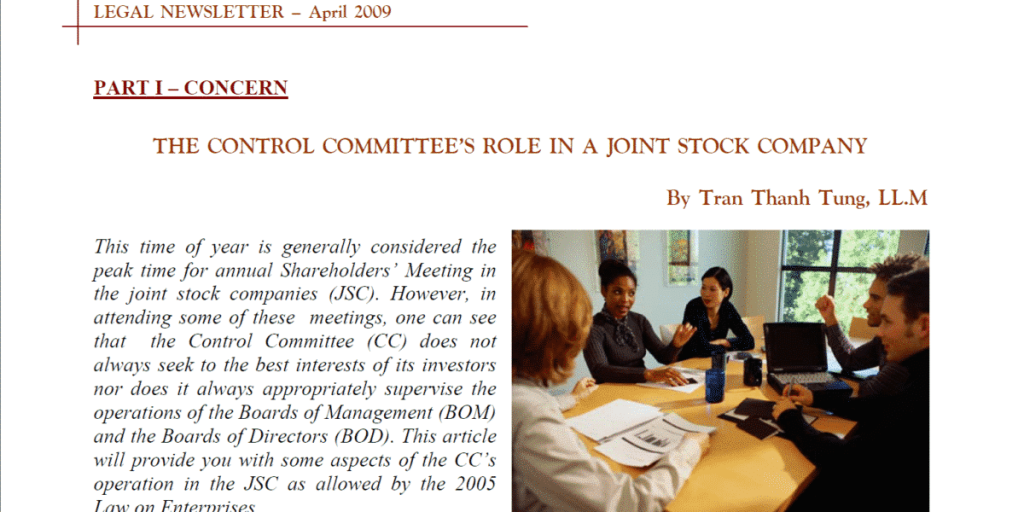GV Lawyers would like to present an article by Ms. Ho Thi Tram, entitled: ”Is the intermediary E-trading Characterized As Both “Honest” And “Dishonest”?” published in Saigon Times on May 23, 2019, Issue No. 21.2019 (1.484).
***
PUSHING ALL RISKS TO CUSTOMERS
Recently many e-commercial trading platforms have changed their delivery policy, not allowing customers to check goods when they are received. The reason given by some e-commercial trading platforms is that the shipper cannot be verified as the seller without information on the goods, and therefore he/she cannot check the goods with the buyer.
Thus, the buyer will have to pay in full before knowing whether the goods are delivered in line with the category, quality, quantity, etc. In other words, the buyer as a platform customer will always hold the “blade” of the knife – as the one who suffers any damage because of undue delivery.
ACTING AS AN INTERMEDIARY
The characteristic of e-commerce is that buyers and sellers do not interact with one another directly, but through the Internet, especially with third-party intermediaries – online “market” owners in the capacity of e-commerce trading platforms. These platforms play a very important role in the transaction process: connecting buyers to sellers, appraising seller information, opening an account for the buyer; charging for transactions including transaction fees to membership fees to delivery fees, etc.
Purchasing is “virtual” until the goods are delivered. Then this buyer really knows if the goods are as advertised online. The platform, acting as the intermediary between the buyer and the seller, must ensure that the purchase goes smoothly without only focusing on receiving benefits but denying its responsibilities. Forcing customers (buyers) to pay before they see goods has deprived them of the right to inspect goods. Customers may therefore purchase counterfeit goods, banned goods or non-quality goods and this can lead to a series of legal troubles such as complaints, returns or even lawsuits. For sellers, they equally suffer from being discredited, distrust or party to legal action when being sued or subject to a complaint. More importantly, in deliberately denying their responsibility for customers, the platforms are throwing stones at themselves because once customers lose trust in the platforms, they will return to traditional trading methods.
DOES THE LAW ALLOW THE PLATFORM TO “DISREGARD ITS RESPONSIBILITY”?
As a matter of law, the relationship between the buyer and the platform is a contract and this contract is made by the platform in the form of general trading conditions (general terms and conditions). The subject matter of the contract stipulates conditions for ordering and selling goods as well as other legal liabilities. The 2015 Civil Code considers the general trading conditions of the platform to be a model contract.
Pursuant to Articles 405.3 and 406.3 of the Civil Code 2015, if the model contract contains a clause that exempts liability of the party preparing the contract based on such model contract, increasing the liabilities or removing the legitimate rights of the other party, such clause will be invalid. Similarly, Article 16 of the Law on Consumer Rights Protection 2010 stipulates the terms of a contract entered into with a consumer, the general transaction conditions will not take effect when: (i) eliminating the responsibility of the organizations and individuals trading in goods and services for consumers in accordance with the law or (ii) allowing organizations and individuals trading in goods and services unilaterally to identify consumers as failing to perform one or more obligations, (iii) forcing consumers to comply with obligations even if organizations and individuals trading in goods and services do not complete their obligations.
More importantly, the fresh delivery policy of the platforms directly violated Article 26.3.a of Decree 52/2013/ND-CP dated May 16, 2013 on e-commerce, whereby platforms and sellers must comply with the Law on Consumer Rights Protection. In particular, Article 9 of the Law on Consumer Rights Protection defines the check of goods before being received as consumer obligations.
In addition to the said matter of law, the platform is, in fact, the party that fully understands the subject matter of the agreement and the transacted goods between the buyer and the seller. It is simply because all transaction information is done on the interface or software of the platform. Many platforms even take on the goods delivery. Therefore, it is difficult to accept the argument of the platform that they do not have enough information on goods.
Obviously, from the said analysis, it can be seen that the policy of “supporting no goods co-inspection” directly violate the prohibitions of the Civil Code and the Law on Consumer Rights Protection. Therefore, this policy is automatically invalidated under Article 117 of the Civil Code (the contract is invalidated due to a violation of the law prohibition). It is thought that e-commercial trading platforms need not only to promote goods check but also cancel the said regulations on “no support for counter-check” to ensure consumers’ rights and comply with the law.





